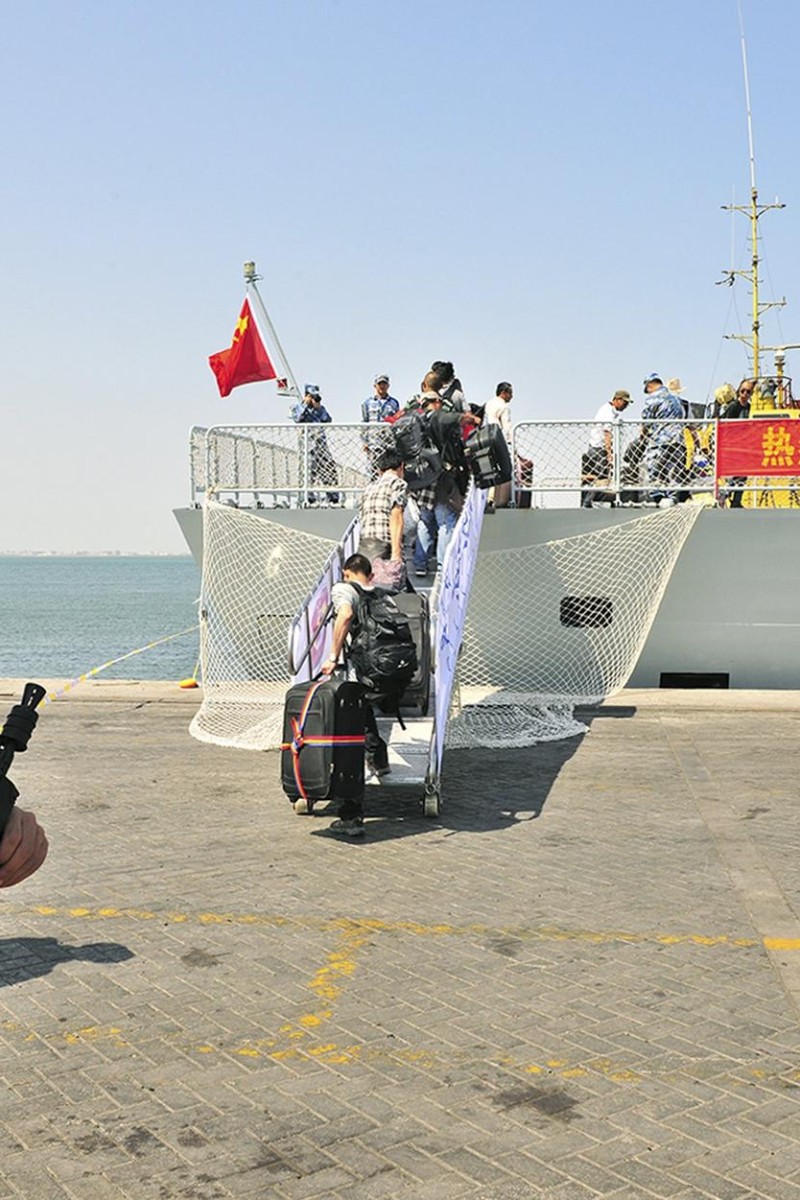
Beijing should keep media open, as modern viewers can get their information elsewhere
 People's Liberation Army sailors get a life of adventure on the high seas - and pickles for dinner.
People's Liberation Army sailors get a life of adventure on the high seas - and pickles for dinner.Following the escalation of armed conflict in Yemen, the People’s Liberation Army deployed warships to rescue 571 Chinese citizens stranded in the war torn nation. State controlled media immediately seized the opportunity to instill national pride after an evacuee revealed that they had an eight-course meal on board while soldiers allegedly ‘ate pickles’.
What took over the internet, however, was far from patriotic. Weibo users either expressed outright scepticism or questioned where all the increasing military funds had gone. Similar outrage erupted online last summer, when two media outlets praised Chinese soldiers for having to resort to drinking dirty water on a Yunnan earthquake relief mission.
Journalists at the BBC suggested that both episodes show discrepancies between “viewers’ genuine demand for better treatment of soldiers” and what reporters are attempting to portray. Simply put, reporters who are under the influence of the Central Government are out of touch with the popular sentiment.
While Beijing is steadfast in remaining a tight control of public forums, I doubt the efficacy of such a “containment” policy. New methods of information dissemination show that an audience unsatisfied by traditional media outlets can easily voice their frustration online, and despite Beijing infamously having two million government employed “Internet opinion analysts”, their responses can never be faster than Sina Weibo active users.
Chai Jing’s self-produced programme Under the Dome reached approximately 200 million mainlanders despite it being censored days after its release. The film was a breath of fresh air among the usual humdrum of politically motivated documentaries and generated 280 million posts on Weibo alone.
Even if China is far from being a champion of free speech, allowing a certain level of dissent, especially on media giants, could alleviate the growing rift between journalists and average city man by portraying news that is truly relatable and realistic. Given China’s stability and growing wealth in the past decade, it is quite a generalisation to fear that political debates will automatically manifest into protests and toppling of Communist regime.
Perhaps Hong Kong could offer a perfect example for television channels that have gradually evolved into a defunct media outlet. ATV, which once was a major player in the local entertainment industry, was finally denied a free-to-air license after months of outstanding debt. The decision even won rare government praise, according to a South China Morning Post article.
TVB, the subject of widespread complaints in recent years, experienced a staggering 18.9 per cent drop in profits in 2014 in spite of it maintaining a de facto monopoly on free television. Its reputation further plummeted when the news department was criticised as “biased” during the Occupy Central campaign when it reported news that was contrary to the truth.
Media, in theory, should be neutral, because it controls the transmission of knowledge and therefore moulds public opinions. But in this day and age where there are plenty of methods to gather information, media that greatly diverges from the interests of public can be punished by a drop in viewership.